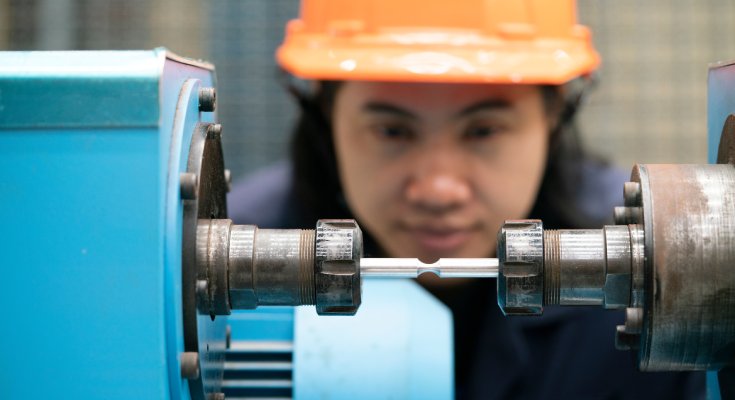Whether you’re producing electronics, machinery, or consumer goods, testing is essential in manufacturing. It might feel tedious at times, but it guarantees your products meet standards while satisfying customers. Explore the reasons manufactured products undergo so many tests before making it to market.
1. Ensuring Safety and Meeting Compliance Standards
Safety is non-negotiable in manufacturing. Conducting thorough tests guarantees that products comply with local and international safety regulations. If a consumer purchases a kitchen appliance that overheats or malfunctions—it’s a safety hazard and a reputational risk for your brand.
Testing helps to identify potential risks during development. Then, you can correct issues before products enter the market. Understanding chemical failure analysis is essential in manufacturing because it helps you determine what went wrong during the process to prevent it from repeating. Additionally, regulatory compliance testing helps you avoid recalls, penalties, or legal issues that could disrupt your business.
2. Maintaining High Product Standards With QC
Your customers expect high-quality products, and testing enables you to deliver on your promise. By identifying defects or inconsistencies early, you can implement corrections without compromising the entire production line.
Quality control (QC) tests verify that each product batch meets the established standards of performance, functionality, and appearance. In the automotive industry, rigorous tests ensure every vehicle component—from the engine to the upholstery—is flawless before the entire vehicle reaches consumers. Consistent testing supports customer satisfaction and strengthens trust in your brand.
3. Testing for Durability and Reliability
How well does your product hold up under stress, wear, or prolonged use? Durability and reliability tests provide the answer. These evaluations mimic real-world conditions so that your product delivers exceptional performance over time. For example, smartphones undergo tests for drop resistance or water exposure.
Without thorough testing, products may fail prematurely, ruining customer confidence and increasing warranty claims. When manufacturers focus on durability, they create products that customers can rely on.
4. Environmental and Sustainability Factors
Customers expect manufacturers to consider the environmental impact of their products. Testing assesses how products perform in various environmental conditions, such as extreme heat, cold, or humidity.
Beyond durability, testing measures a product’s sustainability and whether materials are eco-friendly, recyclable, or energy-efficient. In the electronics industry, products must function reliably and meet stringent environmental standards, such as Restriction of Hazardous Substances (RoHS).
5. Innovating and Future-Proofing With Advanced Testing
Innovation is an essential part of a product’s prolonged use, and advanced testing supports it while future-proofing products. Professionals in high-tech industries, like aerospace and medical devices, rely on cutting-edge testing techniques to eliminate weak points and optimize designs.
By identifying potential improvements early in the process, manufacturers develop products that push the boundaries of what’s possible and build resilience against future challenges. Staying ahead of the curve with product testing can differentiate your brand while instilling confidence in cutting-edge offerings.
Rigorous testing builds better, safer, and more reliable products. Manufactured products go through a lot of testing for many reasons. Assessments lay the groundwork for a product’s success in the market, and you invest in excellence and customer trust by testing your products.


